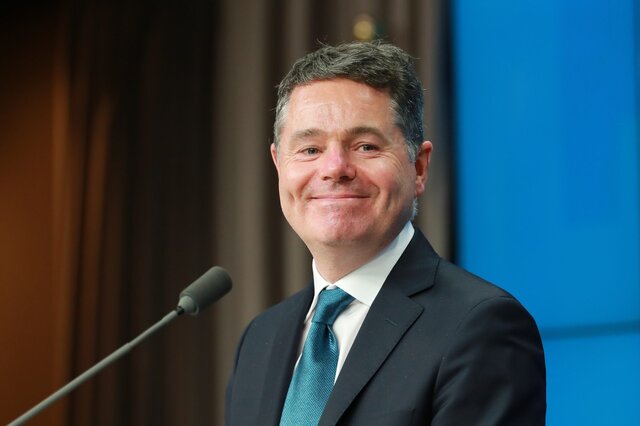Dublin – The Irish government will on Tuesday unveil its budget for the upcoming year and its plans to deal with widespread problems caused by the cost of living and energy crises.
Finance minister for Ireland’s three-party governing coalition Paschal Donohoe will reveal the spending measures at about 1200 GMT in the Dail, the state’s lower house of parliament.
The date for the budget announcement was brought forward by two weeks because of the urgent need to deal with inflationary and supply chain pressures on households and businesses.
On top of a 6.7 billion-euro ($6.5 billion) package laid out in the government’s Summer Economic Statement, the Republic is set to introduce a one-off set of measures to alleviate the cost of living, reportedly of between 2-3 billion euros.
An update on #Budget2023 from Government Buildings
For a behind the scenes look at what happens follow me on Instagram @paschalthetd pic.twitter.com/Tgv8PqlrLF
— Paschal Donohoe (@Paschald) September 26, 2022
On Saturday, Donohoe reiterated the budget would “put money back in the pockets of people” but would stop short of raiding surplus funds.
“There will always be demands on us to do more and to spend more but we are in really uncertain times, we are dealing with a crisis caused by a huge war in Europe and we cannot be sure how long this will go on for,” he said.
The government has indicated surpluses in the state’s coffers would at least partially be held back to deal with uncertainties like the Covid-19 pandemic, Brexit and the war in Ukraine.
On the back of European Commission proposals for a windfall tax on energy firms, EU member Ireland has moved closer to implementing its own levy to offset rising energy costs on families and businesses.
ALSO READ | Unilever CEO to step down end 2023
Earlier this month, deputy premier Leo Varadkar, who will become prime minister in December as part of the coalition government’s rotation deal, told the Dail a backdated windfall tax had been agreed “in principle” and “will form part of the budget”.
But Donohoe has said he had ruled out an energy price cap.
“Any measure that we bring in needs to be affordable and sustainable, and should not be a source of new risk, and we can see significant difficulties with a cap idea,” he said.
“You are in effect requiring the taxpayer to take on all of the cost regarding the price of something that is currently uncertain”.
Follow African Insider on Facebook, Twitter and Instagram
Source: AFP
Picture: Twitter/@IanFlintLowry
For more African news, visit Africaninsider.com


